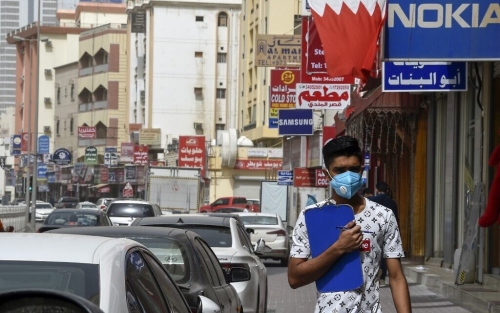Should Bahrain worry as COVID-19 variant JN.1 raises concern worldwide?
TDT | Manama
The Daily Tribune – www.newsofbahrain.com
Reported by Zahra Ayaz
Health experts worldwide are closely monitoring the rapid spread of the JN.1 variant, a subtype of the coronavirus (COVID-19) that has raised concerns, particularly during the winter season.
According to Bahrain Specialist Hospital specialist pulmonologist Dr. Shamil PK, there is growing worry that the JN.1 variant could exacerbate other respiratory diseases such as chronic obstructive pulmonary disease (COPD) and asthma, despite current infections being mostly mild.
“This could potentially increase the overall burden of respiratory illnesses during the winter months, Dr. Shamil warned. He further tells The Daily Tribune that several illnesses predominantly occur in adults with advanced age or certain underlying medical comorbidities such as diabetes, heart diseases, cancer, and immunocompromised states.
These individuals are particularly vulnerable to the JN.1 variant and should take extra precautions to minimise their risk of infection. It is crucial that this high-risk population receives prioritised access to vaccines and continues to follow stringent preventive measures to safeguard their health.
One major obstacle to combating the JN.1 variant and future resurgences of COVID-19 is vaccine hesitancy, which the World Health Organisation (WHO) identified as a top global health threat in 2019. Dr. Shamil emphasised that addressing vaccine hesitancy is crucial for successful vaccination campaigns and controlling the spread of the virus.
Fortunately, as of January 1, 2024, the global population’s immunity combined with the protection provided by XBB1.5 booster vaccines is believed to be effective in preventing severe diseases caused by the JN.1 variant. Existing data indicates that immunity levels are effective in reducing infection severity.
Despite the challenges posed by the emergence of the JN.1 variant, Dr. Shamil reiterated the importance of following general measures to protect against infections. These measures include wearing masks, practicing hand hygiene, self-isolation when infected, and maintaining proper cough etiquette.
Trusting and adhering to guidelines provided by health authorities and governments is crucial to curbing the spread of the virus. Health authorities worldwide are closely monitoring the behaviour of the JN.1 variant and conducting research to better understand its characteristics, transmissibility, and response to existing vaccines. Efforts are underway to adjust public health measures and vaccination campaigns to address the challenges posed by this variant as it continues to spread.
Dr Shamil PK
Related Posts


